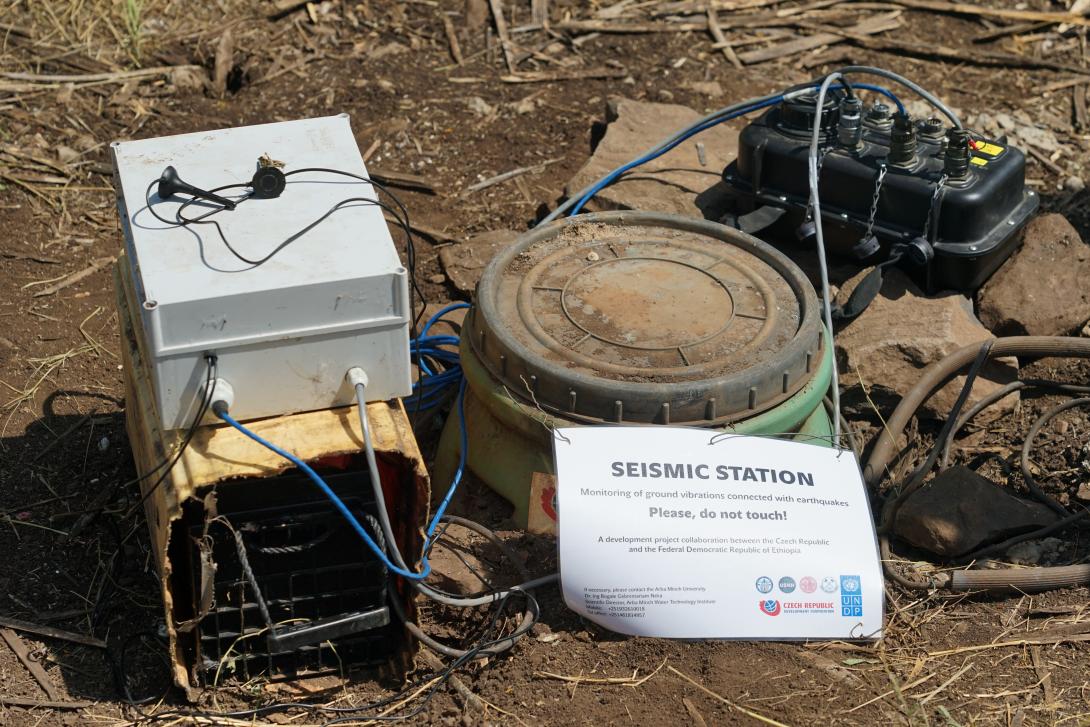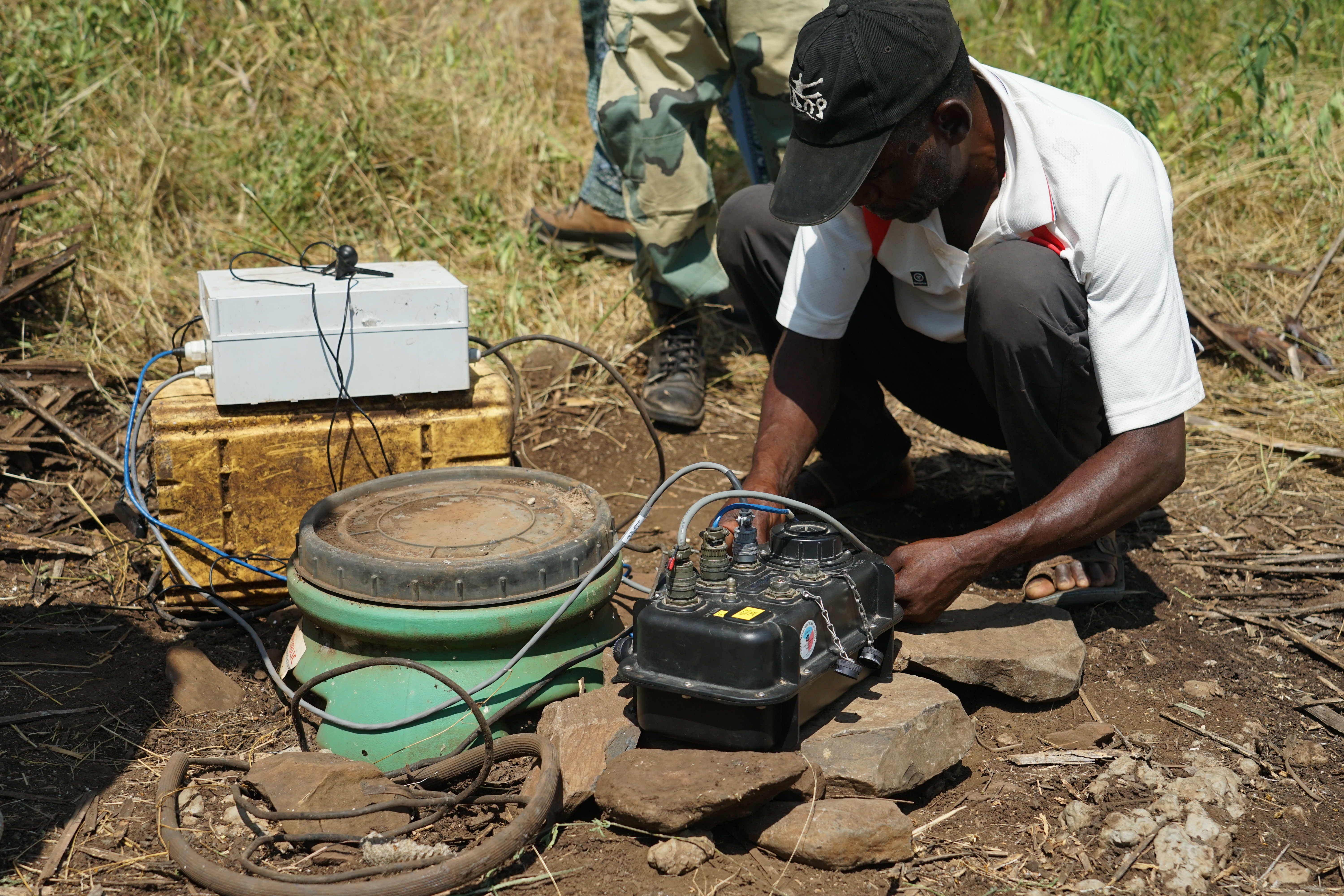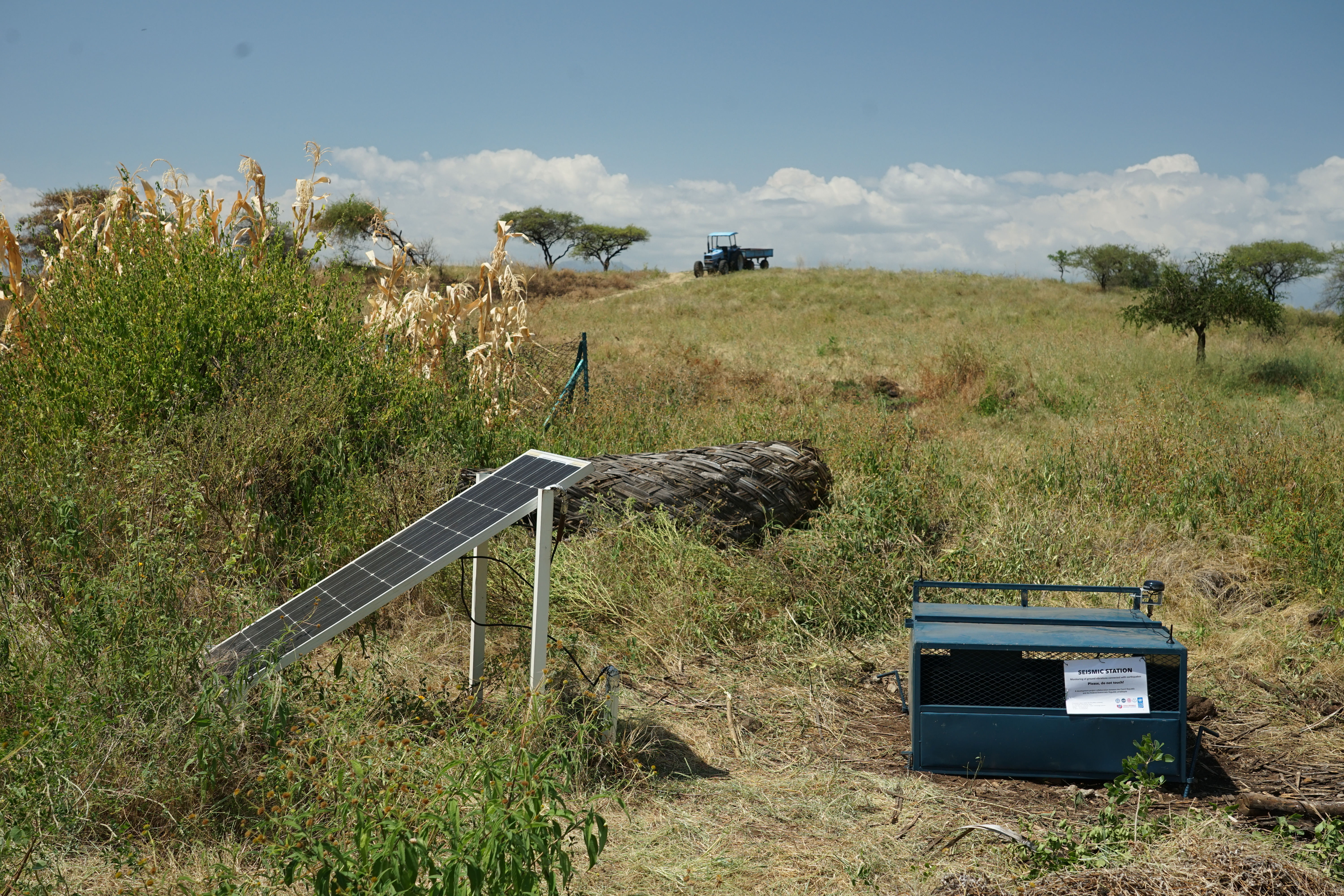
A team of international researchers has achieved a breakthrough in earthquake monitoring in Ethiopia's Southern Main Ethiopian Rift (SMER) by establishing a cutting-edge seismic network near the town of Arba Minch. The initiative addresses long-standing gaps in seismic data coverage, significantly improving earthquake detection and localization accuracy in this tectonically active region.
Led by scientists from the Czech Academy of Sciences, Charles University, and Arba Minch University, the project deployed three new seismic stations in Arba Minch, Dorze, and NechSar National Park. The network has already proven its effectiveness by refining the epicentre location of a May 2024 MW 4.9 earthquake, which was initially placed inaccurately by global monitoring systems.
“This project is a game-changer for understanding seismicity in Ethiopia's Southern Rift,” said Dr. Jan Valenta, lead researcher. “With improved data, we can better assess seismic hazards and support crisis management in rapidly growing urban areas like Arba Minch.”
Integrating Advanced Techniques to Refine Earthquake Data
The new network not only enhances real-time earthquake monitoring but also integrates innovative gravity-based Linsser indications. These analyses identify subsurface fault zones, offering insights into the region's deep-seated tectonic structures. The results have already highlighted previously overlooked fault systems as potential seismic hazard sources.
“The alignment of seismic activity with fault zones mapped through Linsser indications underscores the importance of integrating seismic and gravity data,” added co-author Dr. Lucia Fojtíková. “This will lead to more accurate hazard models for the region.”
Addressing Urban and Regional Risks
The Southern Main Ethiopian Rift, a segment of the East African Rift System, poses significant seismic risks to local communities. While Ethiopia experiences relatively low-magnitude earthquakes, even moderate events can disrupt daily life and instill fear, as seen during the May 2024 quake near Arba Minch.
By providing reliable local data, the network enables researchers to reassess seismic hazard models, particularly in areas where existing maps underestimate potential risks. The findings will inform urban planning and disaster preparedness in one of Ethiopia's fastest-growing regions.
Funding and International Collaboration
This work was made possible through the support of the Czech-UNDP Challenge Fund, a partnership between the United Nations Development Programme (UNDP) and the Czech Republic. The project was financed under the 2023 UNDP-IRH-00048 Czech Challenge Fund, promoting sustainable development through scientific collaboration.
MSc. Tariku Degife from Arba Minch University emphasized the project's local impact: “Strengthening Ethiopia’s seismic monitoring capacity is vital for safeguarding communities. This collaboration is a crucial step toward building resilience.”
Future Outlook
The researchers plan to expand the network and integrate it with regional and global seismic data centers. In addition, the high-quality seismic and gravity data will serve as a foundation for ongoing studies into the tectonic evolution of the East African Rift. The seismic data recorded by the newly installed stations (ARBM, DORZ, and NECH) is freely available upon request from the research team.
This project demonstrates the transformative power of scientific collaboration and innovation in addressing pressing geological and societal challenges in the Global South.
For more information, contact:
Dr. Jan Valenta
Institute of Rock Structure and Mechanics of the Czech Academy of Sciences
Email: valenta@irsm.cas.cz
MSc. Tariku Degife
Geology Department, Arba Minch University
Email: tarikudegife2015@gmail.com


